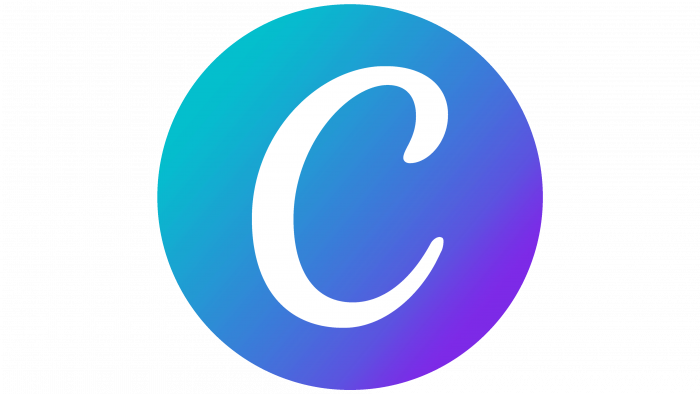Content marketing
Inform, educate, and engage your target audience. See it grow in the most natural way and stay with you.

People love clarity. Whatever you want to have them do – purchase, subscribe, download, donate, etc. – your chances grow if you:
- Explain to them the value of the desired action using effective content creation;
- Do it in a clear, specific, and inspiring way;
- Give them useful information and instructions at the right place and time through strategic content.
Good content marketing helps people find you through SEO optimisation, remember about you through timely publications, and take the right decisions with well-crafted call-to-action strategies. They’ll have all the reasons to thank you for effectively aligning your content marketing strategy with your business goals.

Our Melbourne-based content marketing agency pays great attention to creating impressive explanatory SEO-friendly content, both when developing and promoting a website.
By content, we mean all sorts of media and textual elements, including buttons and service messages strategically placed on your website.

For us, content is not just a link-building or SEM tool. We see it as a powerful means to convey your brand values and assist your target audience in dealing with your brand. Our content creation approach is rooted in the belief that content marketing is about telling your brand’s story in a way that connects it with each user’s story.
We understand that people are more likely to buy from brands they feel connected to, especially from those who help them establish that connection. So be the one!

You can request content marketing as a separate service, but we also provide it as part of solutions, namely Web Development, eCommerce Development, and Digital Marketing. The service is also closely related to SEO.

Reasons to hire us for Content marketing
Content marketing
in detail
Tariffs
Start-up
- Content audit
- Keyword research
- Audience personas
- Content plan and metrics
- Copywriter instructions
Corporate
- Themes and styles
- Channel strategy
- Copywriting and editing, ex. factual validation
- Email marketing
- User insights
Ultimate
- Brilliant descriptions
- Landing page content
- Backlink building
- Offline & online content synchronization
- SERM
Above are the standard packages. Custom plans are offered based on an initial free content audit.
Independently of the package, we always take care to synchronise Content marketing with other marketing practices.
Monthly reports include the work done, KPIs, visibility summary, interpretation, and ideas.
FAQ

Content marketing is a strategic approach that focuses on creating and distributing valuable, relevant, and consistent content to attract and engage a specific target audience. It is based on providing information, entertainment, or education to potential customers rather than directly promoting a product or service. Content marketing aims to build trust, establish brand authority, and nurture long-term relationships with the target audience.
By developing and sharing valuable content, such as articles, blog posts, videos, infographics, podcasts, or social media posts, content marketers aim to provide useful and insightful information that addresses the needs and interests of their target audience. This content is carefully crafted to resonate with the audience, align with their preferences and behaviours, and ultimately influence their purchasing decisions.
Here are the key steps to developing an effective content marketing strategy:
- Define Your Goals: Determine what you want to achieve with your content marketing efforts, whether it’s increasing brand awareness, driving website traffic, generating leads, or boosting conversions. Your goals will shape the direction and focus of your strategy.
- Identify Your Target Audience: Conduct market research to gather demographic information, psychographic insights, and pain points of your ideal customers. This will help you tailor your content to their needs and preferences.
- Conduct a Content Audit: Evaluate your existing content assets to identify gaps, strengths, and areas for improvement. Assess the performance of your current content to determine what is resonating with your audience and what needs to be optimised or created from scratch.
- Develop Buyer Personas: Create detailed buyer personas representing your target audience segments. These personas should capture your ideal customers’ characteristics, behaviours, goals, and challenges. Use these personas as a guide when crafting content that addresses their specific needs.
- Determine Content Types and Formats: Decide on the types of content that will be most effective in reaching and engaging your target audience. Consider using a mix of formats such as blog posts, videos, infographics, podcasts, case studies, or social media content. Align the content formats with the preferences and habits of your audience.
- Keyword Research and SEO Optimisation: Conduct keyword research to identify relevant keywords and topics that align with your target audience’s search intent. Incorporate these keywords into your content to improve its visibility in search engine results. Optimise your content for SEO to enhance organic traffic and discoverability.
- Create a Content Calendar: Develop a content calendar that outlines your content’s topics, formats, and distribution channels. Plan the frequency of content publication and ensure consistency in delivering valuable content to your audience. This calendar will serve as a roadmap for content creation and distribution.
- Establish Content Promotion Channels: Determine the channels and platforms through which you will distribute your content. This can include your website, blog, social media channels, email newsletters, guest posting opportunities, or industry publications. Tailor your content promotion strategies to reach your target audience effectively on each platform.
- Measure and Analyse: Implement tracking mechanisms and set up relevant metrics to measure the performance of your content marketing efforts. Monitor key performance indicators (KPIs) such as website traffic, engagement metrics, conversion rates, and social media reach. Analyse the data regularly to gain insights and make data-driven improvements to your strategy.
- Iterate and Optimise: Continuously assess the effectiveness of your content marketing strategy and make adjustments as needed. Actively seek feedback from your audience, monitor industry trends, and stay updated on best practices. Be open to experimentation and refine your strategy based on insights and evolving market dynamics.
Here’s how content marketing can help with SEO:
- Quality Content and Keywords: Content marketing involves creating high-quality, valuable, relevant content for your target audience. By producing informative and engaging content, you naturally incorporate keywords and key phrases relevant to your industry and target audience. Well-researched and strategically placed keywords in your content can improve your website’s visibility in search engine results pages (SERPs).
- Increased Organic Traffic: When you create and optimise content around topics and keywords your audience is actively searching for, you have a higher chance of attracting organic traffic to your website. Valuable content that aligns with user intent helps to increase your website’s visibility in search results, driving more targeted traffic to your site.
- Backlinks and Authority: High-quality content is more likely to attract backlinks from other websites. When other reputable websites link back to your content, it signals to search engines that your content is valuable and authoritative. Backlinks are an essential factor in search engine algorithms, so they can positively impact your website’s search rankings.
- Improved User Experience: Creating content that addresses your target audience’s needs and interests enhances your website’s overall user experience. Users who find valuable and relevant content tend to spend more time on your site, reducing bounce rates. Positive user experience signals, such as longer dwell time and lower bounce rates, can indirectly improve your website’s SEO performance.
- On-Page Optimisation: Content marketing allows you to optimise on-page elements for SEO. When creating content, you can optimise meta tags, headings, URLs, and image alt tags, ensuring that search engines easily discover your content. Following best practices for on-page optimisation within your content improves your website’s relevance and visibility for target keywords.
- Fresh and Updated Content: Search engines favour websites that consistently publish fresh and updated content. Content marketing encourages you to regularly produce new content through blog posts, articles, or other formats. By consistently adding new content, you signal to search engines that your website is active and provides up-to-date information, potentially boosting your rankings.
- Enhanced Social Signals: Content marketing often involves sharing your content on social media platforms. When your content gets shared and engaged with on social media, it generates social signals, which can indirectly influence your SEO. Social signals, such as likes, shares, and comments, indicate to search engines that your content is valuable and resonates with users, potentially impacting your search rankings.
Content marketing drives sales by creating valuable and relevant content that educates, engages, and guides potential customers throughout their buying journey. Content marketing builds trust and credibility by providing helpful information and addressing their pain points, positioning your brand as a valuable resource. This helps to establish a strong connection with your audience, leading to increased brand awareness, customer loyalty, and, ultimately, higher conversions and sales.
To build an effective content marketing funnel, follow these key steps:
- Define Your Objectives: Clearly define your goals and objectives for the content marketing funnel, such as lead generation, customer acquisition, or product upsells.
- Identify Target Audience: Understand your target audience’s demographics, interests, pain points, and behaviours to create content that resonates with them.
- Create Awareness: Develop top-of-funnel content, such as blog posts, social media content, videos, and infographics, to attract and engage your target audience. Focus on providing value and addressing their needs.
- Capture Leads: Offer valuable content assets, such as ebooks, whitepapers, or webinars, gated behind lead capture forms. Collect contact information to nurture leads further down the funnel.
- Nurture and Educate: Use email marketing, personalised content, and lead nurturing campaigns to build relationships, educate leads, and address their specific pain points. Provide relevant and valuable content to move them closer to purchasing.
- Convert and Close: Offer targeted content, case studies, demos, or discounts to convert leads into customers. Focus on showcasing the value and benefits of your products or services.
- Retain and Upsell: Continue delivering valuable content to existing customers to encourage loyalty and repeat purchases. Use upselling and cross-selling strategies to maximise customer lifetime value.
- Measure and Optimise: Track and analyse key metrics such as conversion rates, engagement, and revenue to assess the effectiveness of your content marketing funnel. Continuously optimise your content and strategies based on data insights.
Testimonials
Let us know by pressing “CONTACT US” above or dropping a line in our livechat. For a more in-depth discussion, try filling out our Brief.













